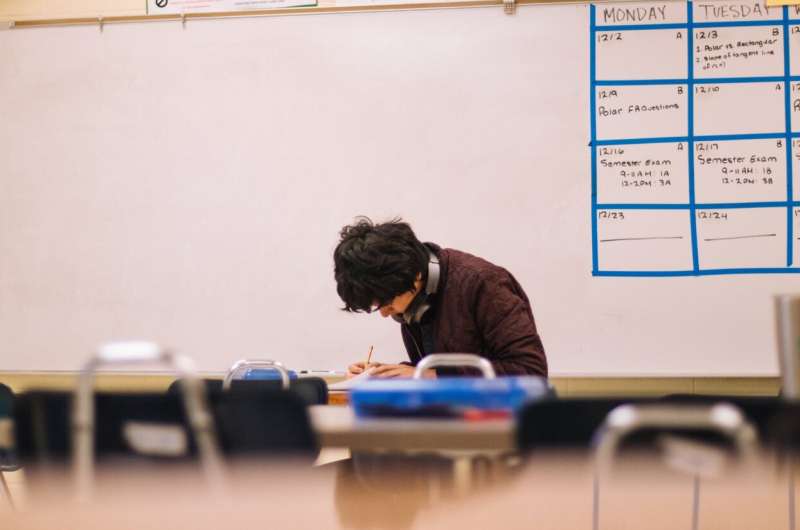New analysis shows ‘rising wave’ of school absence among poorer pupils

New analysis reveals “deeply worrying” attendance gaps, with pupils entitled to free school meals increasingly likely to miss school in the wake of the coronavirus pandemic.
Just over 28% of primary pupils and 40% of secondary pupils eligible for the benefit were persistently absent during the 2021/22 autumn term.
A total of 538,427 pupils entitled to free school meals were persistently absent in the autumn term of 2021/22. In total, 1,595, 582 out of the 7 million pupils in England’s primary and secondary schools had missed a significant number of school days.
Lee Elliot Major, Professor of Social Mobility at the University of Exeter, and Andy Eyles from UCL, analyzed official data in England during the immediate aftermath of the pandemic, breaking down these statistics by whether children qualified for Free School Meals (FSM) or not.
Professor Elliot Major says that “these deeply worrying figures point to a rising wave of school absences that will exacerbate achievement divides between poorer pupils and their peers in the post-pandemic era. While national attendance figures are looking slightly better this term, initial reports suggest that as many as half of poorer pupils are still not returning to school.”
“Some pupils are suffering from financial hardship and a loss of confidence. But most troubling of all, some families appear to have lost their belief that attending school regularly is necessary for their children. The number one priority for Education Ministers must be getting missing pupils back into school; everything else is secondary to this national challenge.”
Pupils are identified as a persistent absentee if they miss 10% or more of their possible school sessions where a session is defined as half a day. This amounts to at least 7 days of schooling in the autumn term from which data are drawn.
Typically, around 10% of primary pupils and 15% of secondary pupils were registered as persistently missing from the classroom during the pre-pandemic years. The attendance gap between FSM pupils and their peers is stark.
In the autumn term of 2019/20 academic year on average 20% of primary pupils eligible for free school meals were persistently absent. In 2021/22 this rose to 28%. For all primary pupils these figures were 11% and 20% respectively.
In the autumn term of the 2020/21 academic year persistent absence among all primary pupils was 10%, and 19% for pupils eligible for free school meals.
Among secondary pupils in the autumn term of 2019/20 persistent absence was 15%, and 28% for pupils eligible for free school meals. In 2020/21 those figures were 17% and 28% respectively. In 2021/22 they were 30% and 40%.
Absences include all authorized and unauthorized absences and those isolating due to a positive COVID test. Absence does not include those pupils who were isolating but did not have a positive COVID test. Absence refers to missed sessions where a session is equal of half a day of schooling.
Mr Eyles says that “the latest statistics show an increase in persistent absence among a significant number of pupils during the pandemic. This means that rates of absence among children on Free School Meals in both primary and secondary schools in England are at the highest levels for at least a decade. Persistent absence is a problem as it has the potential to significantly reduce attainment for absent pupils.”
The researchers warn that the evidence on how to reduce persistent absenteeism is extremely weak. Schools and local authorities are using education welfare officers to make contact with missing pupils with phone calls and home visits. Mentors are also being trained to support pupils. Financial penalties for parents meanwhile are being levied at different rates across the country.
New research suggests COVID has drastically reduced most pupils’ learning and will exacerbate education inequality
Citation:
New analysis shows ‘rising wave’ of school absence among poorer pupils (2022, October 18)
retrieved 18 October 2022
from https://phys.org/news/2022-10-analysis-school-absence-poorer-pupils.html
This document is subject to copyright. Apart from any fair dealing for the purpose of private study or research, no
part may be reproduced without the written permission. The content is provided for information purposes only.
For all the latest Science News Click Here
For the latest news and updates, follow us on Google News.

